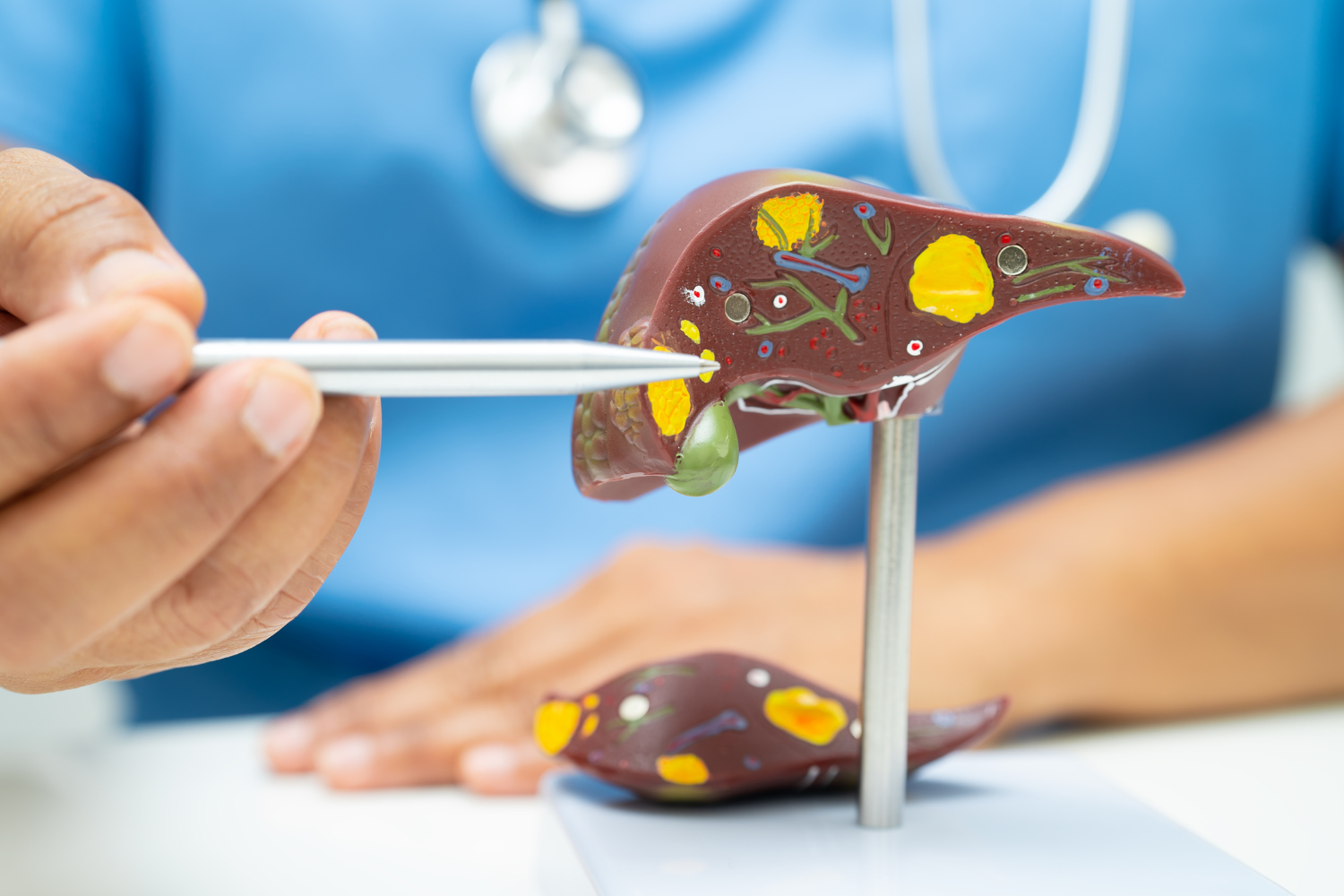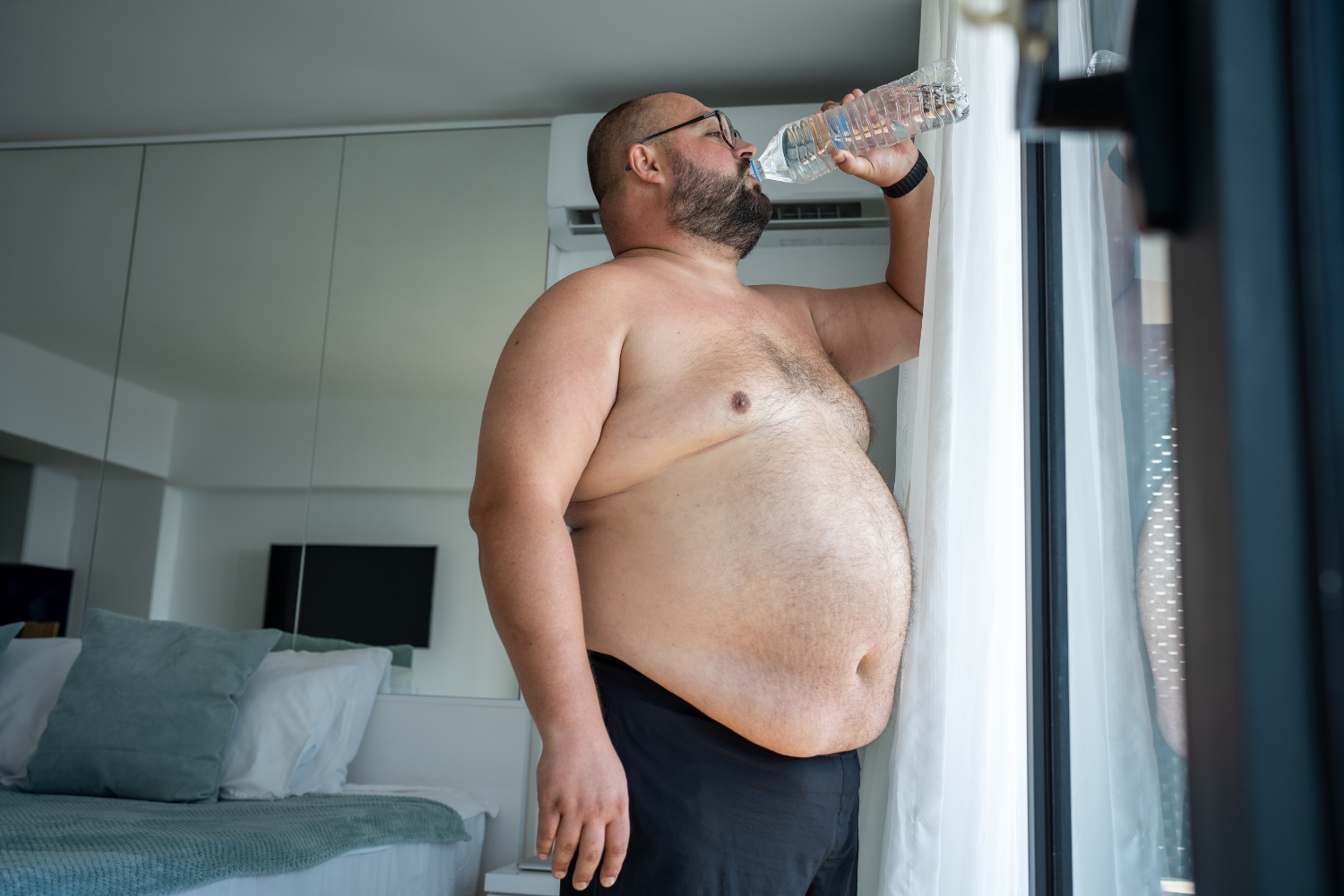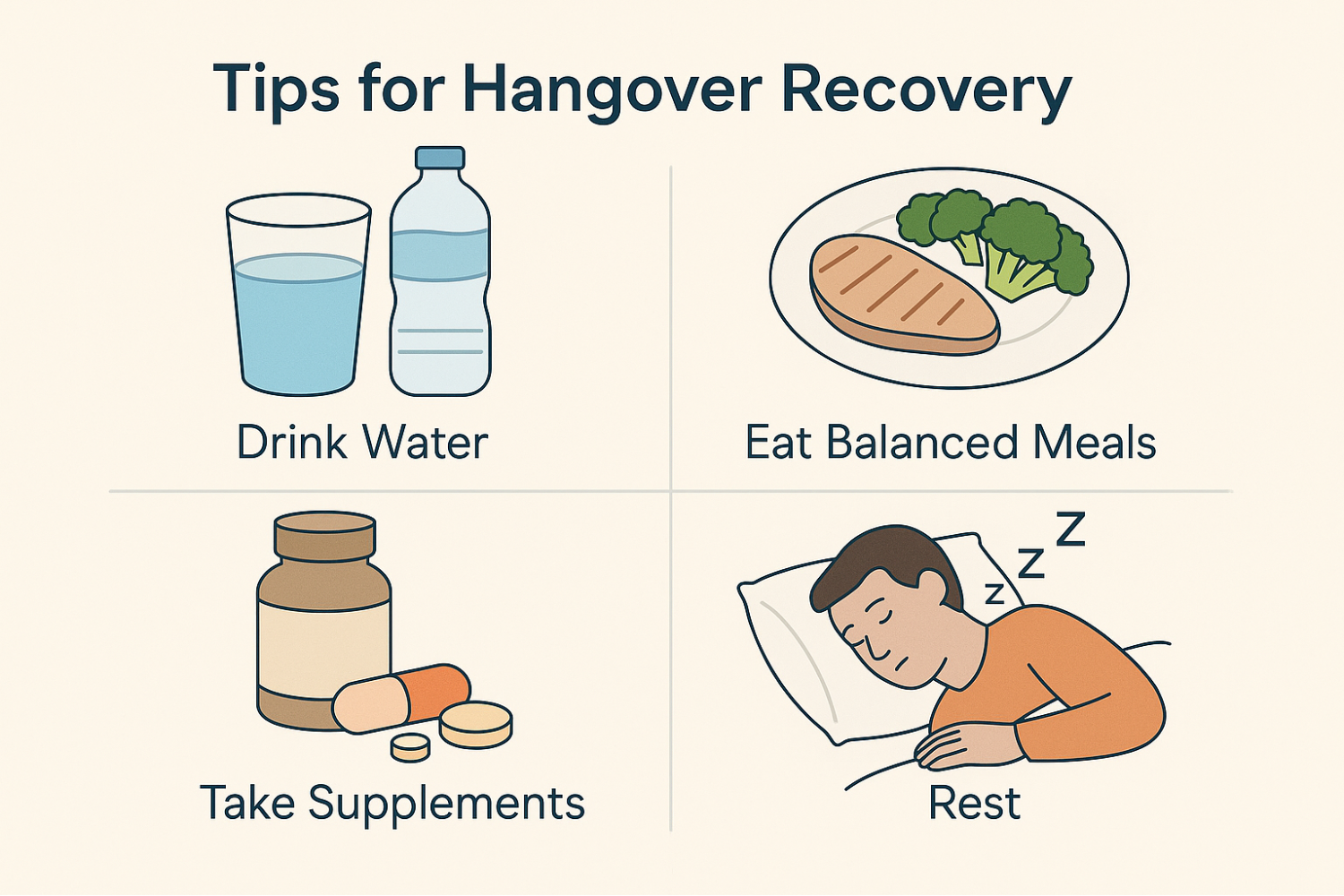The realization hits many people around their thirties or forties: hangovers simply do not respond the way they used to. What was once a manageable headache in college can suddenly become a full-day experience marked by profound fatigue, genuine nausea, and disrupted sleep. This reaction, the hangover, is the body’s full suite of symptoms that follows heavy drinking, including headaches, dehydration, upset stomach, and that deep, drained sensation the following day.
As a person ages, the body undergoes several natural shifts. Factors like slower alcohol metabolism, a change in body composition, and reduced liver efficiency all converge to make the after-effects of drinking feel exponentially worse. This article explores the primary biological and lifestyle reasons why the aging process intensifies hangovers and offers specific, practical methods to mitigate the discomfort, allowing for responsible social drinking.
Why Do Hangovers Get Worse With Age?
The primary reason hangovers intensify with age is straightforward: the body stops processing alcohol with the same efficiency it did in younger years. Several interconnected factors related to how the body handles the toxic byproduct of alcohol, coupled with changes in physical health, contribute to a more punishing, lengthy recovery time.
Slower Alcohol Metabolism
The liver, the body’s primary alcohol processor, may process alcohol differently with age, partly due to shifts in enzyme activity involved in alcohol metabolism. Some research suggests that changes in enzyme activity, including those that help break down alcohol byproducts, may occur with age, but individual differences are significant.
This slowdown means that alcohol’s harmful byproducts remain in the bloodstream for a longer duration, resulting in a higher, sustained blood alcohol concentration. In short, the internal cleanup crew takes longer to do its job, which directly translates to a more severe and prolonged feeling of sickness.

Lower Water Content in the Body
A natural consequence of aging is the loss of muscle mass and a corresponding increase in fat. Because alcohol mixes primarily with water in the body, this change in physical composition reduces the total amount of water available to dilute the alcohol consumed.
When the body has less water content overall, the alcohol concentration in the bloodstream climbs faster and stays elevated. This shift accelerates dehydration, a core contributor to hangover misery, making the symptoms feel much more profound and recovery much more difficult.

Electrolyte and Vitamin Depletion
Alcohol is a diuretic, but it can interfere with the absorption or increase the loss of some electrolytes and B vitamins, which may contribute to fatigue and other effects. The body burns through essential electrolytes like sodium, potassium, and magnesium, as well as B vitamins crucial for energy production and metabolic pathways. When these nutrient reserves are severely depleted, classic hangover symptoms, fatigue, headaches, and nausea, are significantly amplified. Because an older person's system is already slower to restore balance and rehydrate, this deficit can cause the hangover to linger far longer than it once did.
Poor Sleep Quality
It is well-established that alcohol consumption severely disrupts normal sleep architecture, specifically reducing the deep, restorative stages required for physical and cognitive recovery. Since sleep quality often becomes more fragile and intermittent with age regardless of drinking, adding alcohol's disruptive effect on rest becomes even more damaging. This poor rest magnifies fatigue and mental fog, ensuring the hangover feels acutely worse the next morning.
More Medications and Interactions
As people age, they are simply more likely to be taking prescription medications for various health conditions. Alcohol can create unexpected, negative interactions with these drugs, adding to the toxic load on the liver and compounding existing health issues. Even what was once considered moderate drinking can interact poorly with daily prescriptions, thereby intensifying hangover symptoms through systemic stress and adverse drug effects.
Lifestyle and Tolerance Changes
Steady drinkers in younger years often notice that their drinking habits change over time. With less frequent drinking and reduced tolerance, the body’s signals become stronger, making even a few alcoholic drinks lead to more severe hangovers. Age-related changes in body composition, hydration levels, and metabolism all combine to make hangovers seem to get worse with age.
Common Hangover Symptoms That Feel Stronger With Age
When alcohol metabolism slows and the body’s reserves diminish, the same quantity of alcohol can trigger a disproportionately severe reaction. These cumulative effects become harder to ignore and tend to drag on well past noon.
-
Fatigue and low energy: Become crippling, often directly tied to lost sleep and nutrient deficit.
-
Headache and dehydration signs: A result of the higher blood alcohol concentration circulating in a body with reduced water content.
-
Dizziness or brain fog: An unsettling feeling caused by shifting blood alcohol levels, poor rest, and electrolyte imbalance.
-
Mood and focus changes: Leads to irritability and difficulty concentrating and are harder to manage.
-
Stomach discomfort: Nausea and general digestive upset caused by alcohol’s abrasive impact.

Tips to Manage Hangovers as You Age
While aging introduces biological hurdles, small but meaningful changes before, during, and after drinking can significantly reduce hangover intensity and improve recovery. These steps focus on making it easier for the body to manage the metabolic stress.
-
Prioritize Fluid Balance: Alcohol is a diuretic, causing the body to expel water rapidly. Consciously drinking water before, during, and after consuming alcoholic beverages is the most fundamental way to fight dehydration and lessen the toxic effects that contribute to feeling terrible.
-
Replenish Lost Electrolytes: Because critical minerals like potassium and sodium are lost, integrating fluids rich in electrolytes or consuming mineral-dense foods is crucial. Restoring this balance helps quickly lessen physical symptoms like fatigue, lightheadedness, and muscle aches.
-
Eat Nutrient-Rich Meals: Never drink on an empty stomach. Eating a substantial, balanced meal containing protein, complex carbohydrates, and healthy fats helps to stabilize blood sugar and slow the absorption of alcohol's inflammatory byproducts. Fueling the body properly gives the system the energy required to process the alcohol efficiently.
-
Targeted Nutritional Support: Utilizing supplements that include vitamins and antioxidants can specifically support alcohol metabolism and liver function. Products like Revil are formulated with nutrients that help support normal liver function, energy metabolism, and hydration processes, which are key areas impacted by alcohol consumption.
-
Moderate and Pace Intake: Binge drinking or consuming alcohol rapidly overwhelms the liver, spiking blood alcohol concentration and creating unnecessary stress. Pacing oneself, alternating alcoholic drinks with water, and limiting the total quantity allows the body’s metabolic capacity to keep up. This disciplined approach is the single most effective way to prevent the most severe reactions.
-
Give Time for Recovery: Hangovers are aggravated by poor sleep, so giving the body ample time to rest is non-negotiable. Allowing for a long sleep, or even taking a quick nap, gives the body the opportunity it needs to reset hormone levels and repair itself, directly combating deep fatigue.

Can You Prevent Hangovers From Getting Worse With Age?
There is no miracle cure for the common hangover, and age-related biological changes inevitably make them more challenging to avoid. However, effective prevention revolves around supporting the body's diminishing capacity. Mindful drinking habits, consistent hydration, and intelligent nutritional choices make a substantial difference.
Pairing alcohol consumption with plain water, nutrient-rich food, and external support like electrolytes or targeted supplements helps the body recover much faster. Small, consistent steps truly add up, and choosing to drink responsibly remains the most powerful strategy for limiting alcohol’s negative, intensifying effects as the years pass.

Hangovers Change With Age, But You Can Support Your Body
Slower alcohol metabolism, changes in hydration levels, and shifts in lifestyle all explain why hangovers feel worse with age. Paying attention to hydration, choosing balanced meals, and keeping nutrients in check can help lessen hangover severity. Drinkwel supplements contain nutrients that support healthy liver function, hydration, and energy production.
Frequently Asked Questions
Why does alcohol affect me more as I get older?
Age-related decline in liver function, lower overall body water content, and reduced metabolic speed all make alcohol’s effects more intense and prolonged.
Do hangovers actually last longer with age?
Yes, because the body breaks down alcohol more slowly, the toxic byproducts remain in the system longer, which directly extends the duration of hangover symptoms.
What is the best way to reduce hangover severity?
The most effective strategy is to stay aggressively hydrated, consume balanced meals, pace your drinking, and use supplements to support key nutrient balances.
Are certain types of alcohol particularly bad for recovery?
Liquors and wines containing higher levels of congeners, such as red wine or dark spirits like whiskey, generally tend to worsen hangover symptoms more than clear spirits.
What should be consumed to rehydrate quickly after drinking?
Water is essential, but fluids with added electrolytes, such as sports drinks or dedicated rehydration solutions, are excellent for restoring lost fluid and mineral balance.
References
-
Cederbaum A. I. (2012). Alcohol metabolism. Clinics in liver disease, 16(4), 667–685. https://doi.org/10.1016/j.cld.2012.08.002
-
Lieber C. S. (2003). Relationships between nutrition, alcohol use, and liver disease. Alcohol research & health : the journal of the National Institute on Alcohol Abuse and Alcoholism, 27(3), 220–231. https://pubmed.ncbi.nlm.nih.gov/15535450/
-
Roehrs, T., & Roth, T. (2001). Sleep, sleepiness, and alcohol use. Alcohol research & health : the journal of the National Institute on Alcohol Abuse and Alcoholism, 25(2), 101–109. https://pubmed.ncbi.nlm.nih.gov/11584549/
-
Roubenoff, R., & Hughes, V. A. (2000). Sarcopenia: current concepts. The journals of gerontology. Series A, Biological sciences and medical sciences, 55(12), M716–M724. https://doi.org/10.1093/gerona/55.12.m716
-
Trevisan, L. A., Boutros, N., Petrakis, I. L., & Krystal, J. H. (1998). Complications of alcohol withdrawal: pathophysiological insights. Alcohol health and research world, 22(1), 61–66. https://pubmed.ncbi.nlm.nih.gov/15706735/
-
Zakhari S. (2006). Overview: how is alcohol metabolized by the body?. Alcohol research & health : the journal of the National Institute on Alcohol Abuse and Alcoholism, 29(4), 245–254. https://pmc.ncbi.nlm.nih.gov/articles/PMC6527027/
